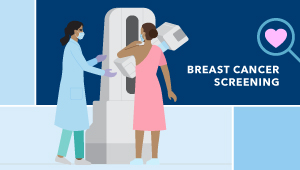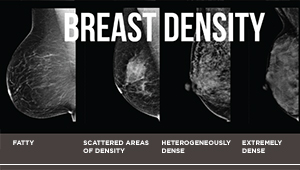Weiwei Zhu, MS
Biography
Weiwei Zhu, MS, joined Kaiser Permanente Washington Health Research Institute's Biostatistics Unit in 2009. She works closely with Affiliate Investigator Diana Miglioretti, PhD, to design studies, manage data, and conduct statistical analyses for the Breast Cancer Surveillance Consortium (BCSC) — the National Cancer Institute’s 7-site network of mammography researchers. She has been a key member of the BCSC Statistical Coordinating Center for over 10 years. Her work studying breast screening benefits and risks played an essential role in an American Cancer Society screening guideline change in 2015.
Weiwei’s current other studies include testing the effects of sitting reduction on cardiometabolic health outcomes through a large randomized trial in older adults, studying a sedentary behavior reduction and physical activity promotion intervention for the older Latino/Hispanic community, and examining the association of the 24-hour activity cycle with cognition and physical function in older adults with Senior Investigator Dori Rosenberg, PhD, MPH. Weiwei has also collaborated on research to quantify the serious risks of misuse, abuse, and addiction associated with long-term opioid use. This multi-site study used electronic health record data and survey interviews to provide estimates of long-term opioid use risks in 2 cohorts.
After beginning her medical research career as an intern at the University of Texas MD Anderson Cancer Center in 2007, Weiwei served as a biostatistician at the Moffitt Cancer Center and Research Institute in Florida.
Research interests and experience
-
Biostatistics
Correlated data analysis; longitudinal data; survival analysis
Medication Use & Patient Safety
Opioid misuse, abuse, and addiction
-
Cancer
Biostatistics; breast cancer screening and surveillance
Recent publications
Lee CI, Zhu W, Onega TL, Germino J, O'Meara ES, Lehman CD, Henderson LM, Haas JS, Kerlikowske K, Sprague BL, Rauscher GH, Tosteson ANA, Alford-Teaster J, Wernli KJ, Miglioretti DL The Effect of Digital Breast Tomosynthesis Adoption on Facility-Level Breast Cancer Screening Volume 2018 Nov;211(5):957-963. doi: 10.2214/AJR.17.19350. Epub 2018-09-20. PubMed
Henderson LM, Hubbard RA, Zhu W, Weiss J, Wernli KJ, Goodrich ME, Kerlikowske K, DeMartini W, Ozanne EM, Onega T Preoperative Breast Magnetic Resonance Imaging Use by Breast Density and Family History of Breast Cancer 2018 Aug;27(8):987-993. doi: 10.1089/jwh.2017.6428. Epub 2018-01-15. PubMed
Onega T, Zhu W, Weiss JE, Goodrich M, Tosteson ANA, DeMartini W, Virnig BA, Henderson LM, Buist DSM, Wernli KJ, Kerlikowske K, Hubbard RA Preoperative breast MRI and mortality in older women with breast cancer 2018 Jul;170(1):149-157. doi: 10.1007/s10549-018-4732-z. Epub 2018-03-07. PubMed
Miles R, Wan F, Onega TL, Lenderink-Carpenter A, O'Meara ES, Zhu W, Henderson LM, Haas JS, Hill DA, Tosteson ANA, Wernli KJ, Alford-Teaster J, Lee JM, Lehman CD, Lee CI Underutilization of Supplemental Magnetic Resonance Imaging Screening Among Patients at High Breast Cancer Risk 2018 Jun;27(6):748-754. doi: 10.1089/jwh.2017.6623. Epub 2018-01-17. PubMed
Groeneweg M, Forrester S, Arnold B, Palazzo L, Zhu W, Yoon P, Scearce T. One-year outcomes of an integrated multiple sclerosis disease management program. J Manag Care Spec Pharm. 2018 May;24(5):458-463. doi: 10.18553/jmcp.2018.24.5.458. PubMed
Research

Roundup of 3 recent studies on breast cancer screening
New research spotlights overdiagnosis, MRI before surgery, and a new way of predicting breast cancer risk
Cancer screening

Breast density is a risk factor for older women, too
Findings in JAMA Network Open could help guide decision-making about breast cancer screening for women 75 and older.
Research

Phone therapy for insomnia shown to improve sleep
A study among KP members with sleep problems and osteoarthritis shows promise for overcoming obstacles to treatment.



